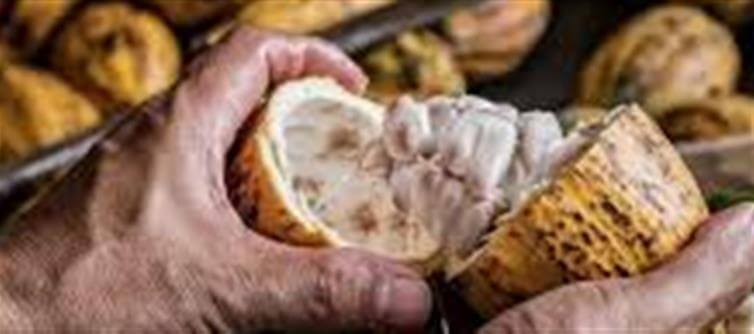
In a sustainable innovation aimed at reducing waste and improving nutrition, Kerala Agricultural university (KAU) has developed methods to convert cocoa by-products into edible and healthful products. Cocoa husk and pulp, typically discarded during chocolate production, have now found new life as cookies and beverages.
1. From Waste to Wellness
The Cocoa Research Centre at KAU recognized that cocoa husk and pulp — the skin and outer parts of cocoa seeds — were usually discarded, creating environmental and agricultural problems. Improper disposal can encourage fungal growth, mosquito breeding, and diseases like Phytophthora, which causes black-leg disease in cocoa and threatens other crops such as coconut and rubber.
With government support and five years of research, scientists have transformed these by-products into nutritious, edible products, benefiting both health and the environment.
2. High-Fibre Cocoa Husk Cookies
One of the innovative products is cocoa husk cookies, designed as a healthy snack rich in fiber.
Preparation: Cocoa husk powder is treated to remove acidity, polyphenols, and anti-nutritional factors, making it safe and palatable.
Varieties: Two options are available — one blended with oats and the other using avil (rice flakes).
Target Consumers: These cookies are suitable for diabetics, the elderly, and anyone seeking a high-fiber snack.
Nutritional Values:
Energy: 541.92 calories
Carbohydrates: 48.10 g
Protein: 8.63 g
Fat: 35 g
Dietary fiber: 4.26 g
By repurposing cocoa husk, KAU not only reduces waste but also creates functional snacks that support digestive health.
3. Ready-to-Serve Beverage from Cocoa Pulp
During cocoa fermentation, the pulp surrounding the beans can release unpleasant odors and foster fungal growth, affecting cocoa quality. KAU researchers tackled this by using a portion of the pulp to create a nutritious beverage.
Benefits: The drink is rich in antioxidants, supports overall health, and contributes to safer cocoa fermentation.
Method: By removing a small fraction of the pulp before fermentation, the final beverage’s taste and safety are enhanced, while reducing risks from free fatty acids and microbial contamination.
Nutritional Values:
Carbohydrates: 12.6 g
Vitamin C: 7.51 mg
Sodium: 563 mg
Potassium: 1,748 mg
This ready-to-serve drink demonstrates how food by-products can be upcycled into functional beverages, aligning with modern trends of sustainability and health consciousness.
4. Moving Towards Wider Adoption
The success of this project began as a student-led initiative, highlighting the importance of academic research in practical problem-solving. With state government support, the products are now available at the Cocoa Research Centre. Plans are underway to transfer the technology to other cocoa producers and industries, promoting waste reduction, environmental safety, and nutritional innovation across the sector.
5. Conclusion
Kerala Agricultural university has shown how innovative thinking can transform waste into valuable resources. By converting cocoa husk and pulp into nutritious cookies and drinks, KAU is not only improving health outcomes but also reducing environmental hazards. This approach sets an inspiring example for sustainable agriculture and food innovation..jpg)




 click and follow Indiaherald WhatsApp channel
click and follow Indiaherald WhatsApp channel